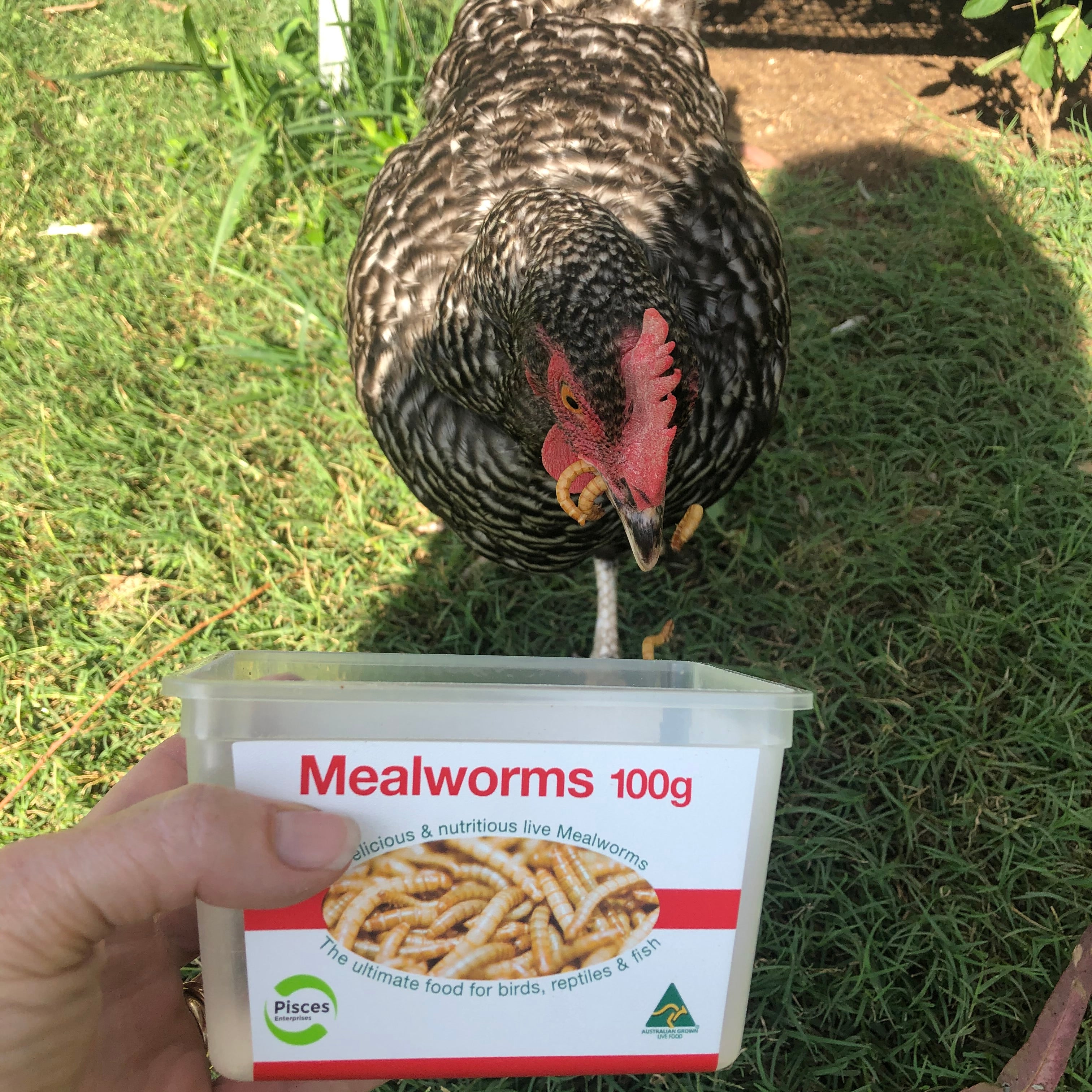Feeding mealworms to your chickens can significantly enhance their diet, leading to happier, healthier birds and, ultimately, higher-quality eggs.
What are Mealworms?
Mealworms are the larval form of the mealworm beetle, Tenebrio molitor, a species of darkling beetle. They are high in protein, fat, and essential nutrients, making them an excellent dietary supplement for chickens. We grow them in four sizes: Mini-Mealies, Small Mealworms, Mealworms and Superworms.
Why are they so good?
High Protein Content
Protein is crucial for the growth and development of chickens, playing a vital role in everything from feather formation to egg production. Mealworms are comprised of up to 55% protein, providing a rich source of essential amino acids. This high protein content can help in muscle development, repair, and overall health, making mealworms an ideal supplement, especially during moulting, when chickens need extra protein to regrow feathers; egg laying, when optimal nutrition is vital and prior to egg brooding, when extra energy reserves are vital for maintaining hen health during egg-sitting.
Fats and Fatty Acids
Aside from protein, mealworms contain healthy fats, including linoleic acid, which is beneficial for egg production. These fats are essential for energy, supporting cell growth, and the absorption of vitamins A, D, E, and K, which are fat-soluble.
Vitamins and Minerals
Mealworms are also a good source of B vitamins, especially B12, essential for the nervous system health and red blood cell formation. They provide minerals such as iron, potassium, and zinc, which contribute to the overall health and wellbeing of chickens. Iron is particularly important for producing haemoglobin, while zinc supports the immune system.
They are fun!
Chickens love to scratch and forage. It stimulates their mind and their natural instincts when they have live insects to hunt and eat. Chickens are programmed to eat an assortment of bugs that they find in their environment. Unfortunately, most modern chickens have a limited area where they can roam, so the native insects are eaten fast. That's where our bugs come in handy. Chasing mealworms, crickets and woodies is FUN!
Benefits Beyond Nutrition
Feeding these highly prized treats to your flock strengthens your bond with them. Chickens quickly learn to come when you arrive with their delicious food insects. Some people even use mealworms as a tool for training and taming chickens making them easier to care for and manage.
What eats Mealworms?
Mealworms are healthy for chickens, ducks, turkeys, guinea fowl, peacocks, pheasants, geese and other birds. Mealworms are a great addition to a healthy diet for native wildlife like sugar gliders, possums, echidnas, butcher birds, magpies and kookaburras. Many softbill birds like finches and wrens enjoy mealworms. Reptiles, turtles and predatory insects also benefit from mealworms.
Our mealworms are grown on our family farm and shipped to your door by priority couriers.
How to store your Live Mealworms
Bulk Packs of Mealworms will arrive in a calico bag. They will need to be fed to your animals or transferred to a large shallow plastic container. Add extra
wheat bran as necessary and feed with sliced carrots.
For longer storage place in the crisper of a refrigerator. Every few weeks they should be allowed to come to room temperature and fed with fresh wheat bran and carrot slices before they are re-chilled.
Incorporating mealworms into your chickens' diet is a simple yet effective way to boost their nutritional intake, leading to a host of benefits, including improved health, better egg production, and enhanced overall well-being. Mealworms are a nutritional powerhouse that can significantly contribute to the vitality of your happy, healthy, and productive backyard farm.





Share and get 15% off!
Simply share this product on one of the following social networks and you will unlock 15% off!